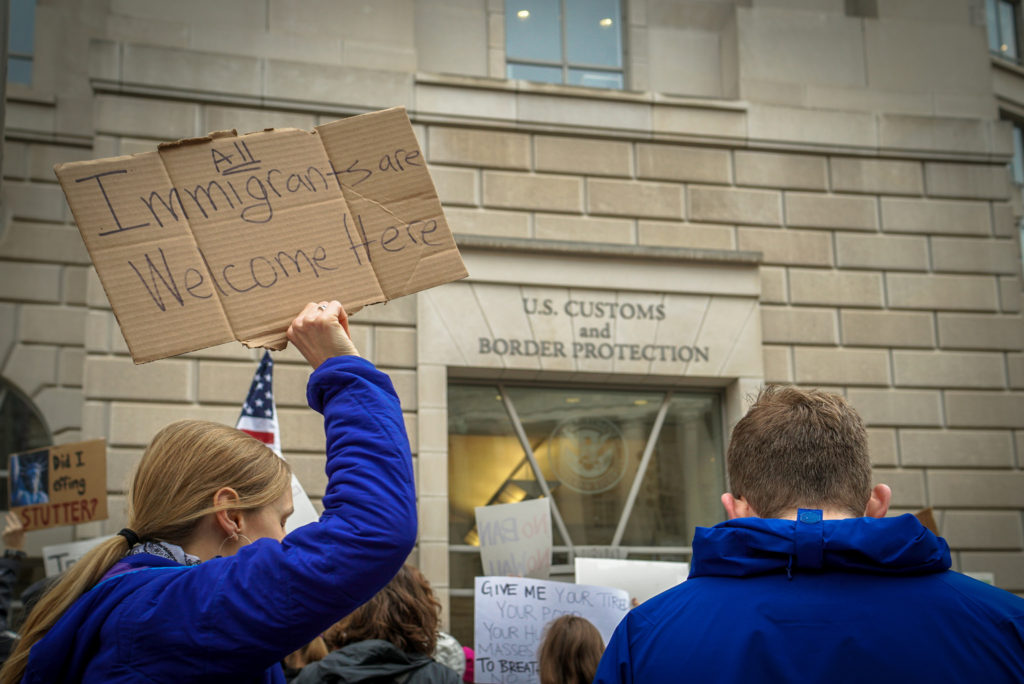
Access to Counsel: A Corollary to “The Production of Precarity” within the US Immigration System
By Elizabeth Schmelzel
Leah Rodriguez’s work, “The Production of Precarity: How US Immigration ‘Status’ Affects Work in Central Texas” offers a comprehensive breakdown of the relationship between immigration law and precarity for immigrants in the United States, drawing on cases from Central Texas to illustrate those dynamics. Rodriguez points out that “[t]o the extent that immigrants’ precarious work is tied to their US immigration status, which is so often dependent on the will of Congress, the Executive administration, regional immigration judges, asylum officers, and countless administrative, bureaucratic actors in between,… immigration law works to create precarity.” If we want to confront and ameliorate immigrants’ precarity, she argues, law reform is critical. Rodriguez points to several possibilities for change—eliminating the codification of “discretion” and “deserving” migrants in immigration law and lowering barriers to securing driver’s licenses, among others. Yet even if law and policy shifted, creating more opportunities for immigrants to secure status or maintain work permits, immigrants will need assistance in asserting their rights. That reality is why the provision of attorneys for low-income immigrants would radically confront precariousness.
As it stands, very few categories of people have the right to a free attorney in the United States. Under the Sixth Amendment, it is only a criminal defendant that has a constitutional right to be represented by an attorney during trial. People caught in the immigration system, however, are accused of violating civil, not criminal, law. Therefore, while they can hire an attorney on their own, either with their own money or by securing the help of legal non-profits, immigrants do not have the right to appointed counsel at the government’s expense. This is true no matter what the stakes of an immigration case might be, from completing a relatively straightforward DACA application, to adjudicating a protracted and complicated asylum claim which could determine whether someone is deported. What this means is that indigent asylum seekers, who may have fled torture, who do not speak English, and who are unfamiliar with immigration law, are forced to represent themselves. Egregiously, this includes children, who, under American asylum law, can be forced to represent themselves in proceedings to determine whether they will be deported.[1]
We know that access to legal counsel secures better outcomes for immigrants, and assuages the government’s concerns about immigrants absconding to avoid court hearings. Detained immigrants are more likely to be released on bond if they have an attorney, and immigrants of all kinds are more likely to be successful on the outcome of their substantive immigration case if they are represented.[2] One recent study shows that a full 93% of non-detained immigrants showed up to court when they had legal representation.[3] By comparison, only 32% of non-detained immigrants representing themselves attended required court hearings.[4] Thus, when considering Rodriguez’s proposed solutions for ameliorating immigrant precarity, the importance of access to counsel should not be overlooked. The question, of course, is whether there is the political will (and fiscal space) to incorporate free legal representation into the American immigration system. Perhaps not now, given the shameful political rhetoric around immigration in 2018. But as Rodriguez points out, maybe there could be, provided that well-informed readers, armed with data and facts, continue engaging in the art of persuasion “in the United States Congress, in the workplace, or around the dinner table.”
[1] American Immigration Council, “Children in Immigration Court: Over 95 Per Cent Represented by an Attorney Appear in Court.” Available https://www.americanimmigrationcouncil.org/sites/default/files/research/children_in_immigration_court_0.pdf. Accessed 20 June 2018; Loreilei Larid, “Immigration Children Begin Appearing in Court Without Lawyers or Parents,” ABA Jounral. Available: http://www.abajournal.com/news/article/children_separated_from_parents_begin_appearing_in_court_without_lawyers_or. Accessed 29 June 2018.
[2] Ingrid V. Egaly and Stephen Schaefer, A National Study of Access to Counsel in Immigration Court. 164 U. Penn. L. Review. 1, 69-70; 57-59 (2015).
[3] Id. at 73.
[4] Id.
